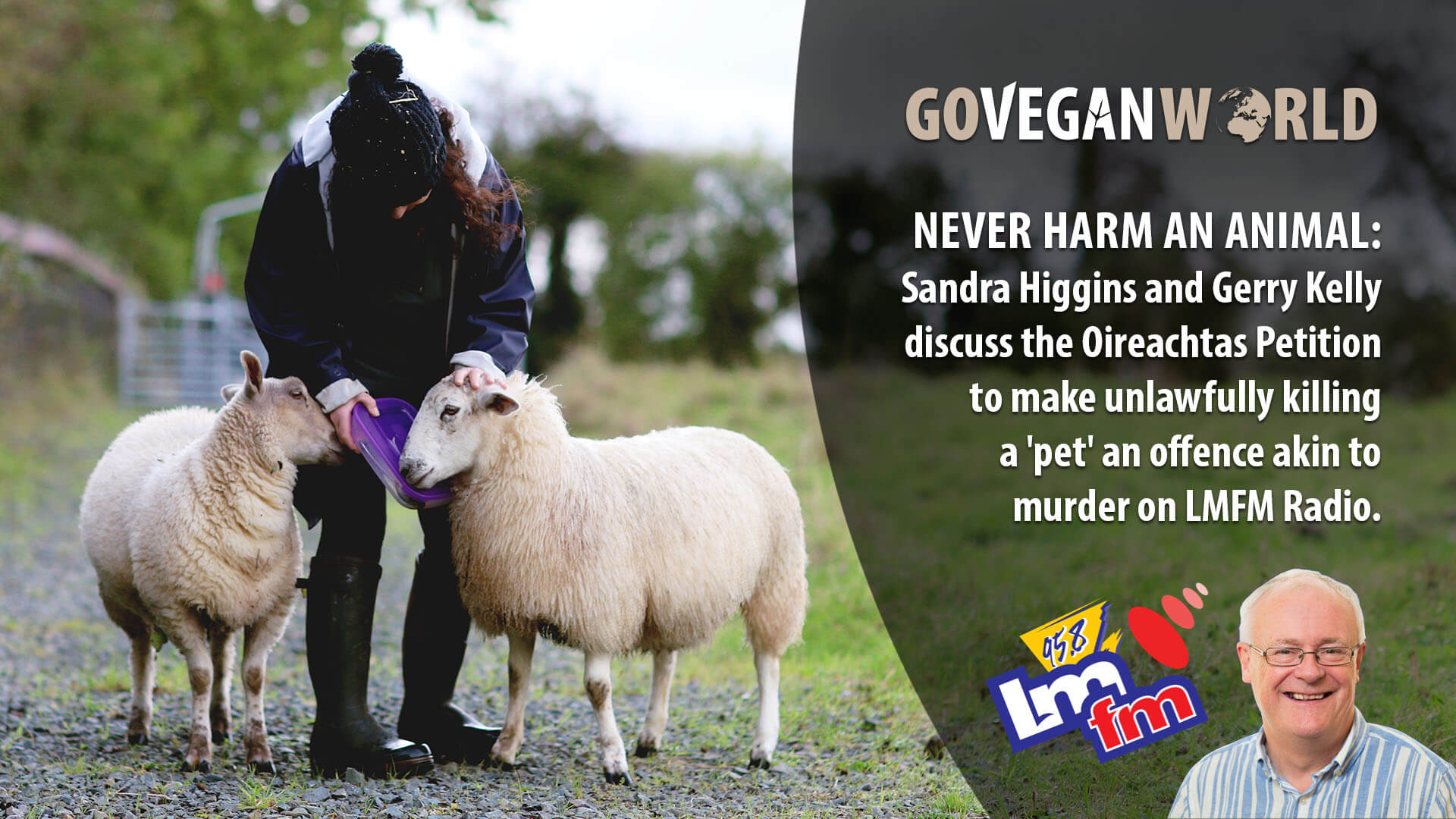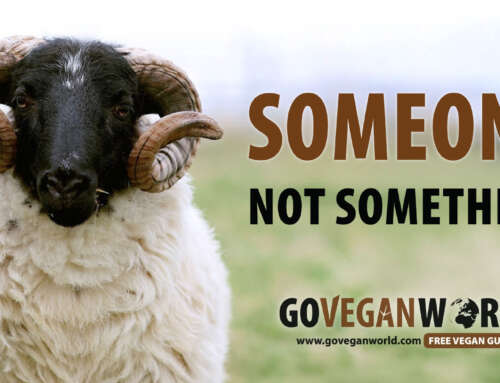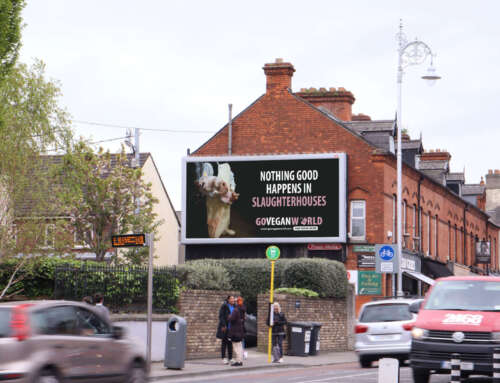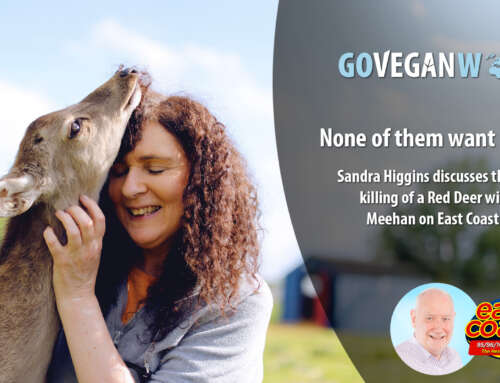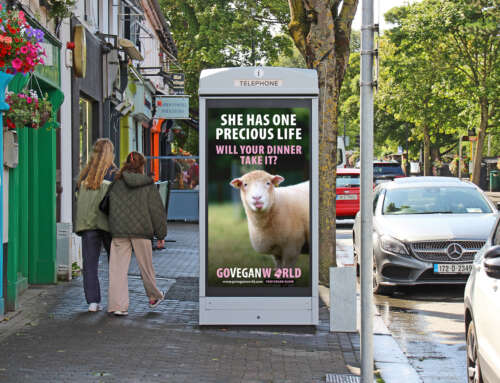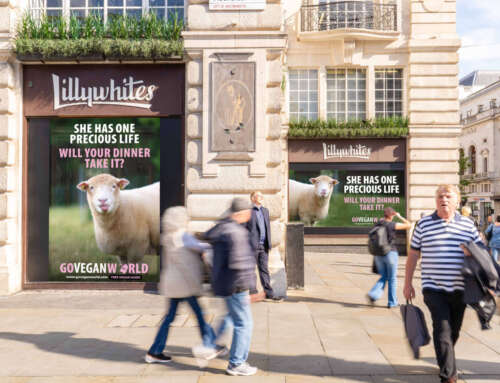16.04.2024
“Never Harm an Animal” Sandra Higgins chats to Gerry Kelly on LMFM Radio
Sandra Higgins and Gerry Kelly discuss the recent consideration by the Joint Committee on Public Petitions and the Ombudsmen of the Public Petition Number P00020/24 ‘Make unlawfully killing a pet an offence akin to murder, not criminal damage’.
Criminal damage refers to damage to property. Murder refers to unlawful killing of a person. Other animals are currently the legal property of the humans who own them. If they are harmed or killed, the only legal recourse available pertains to the harm caused to the property owner and not the experience of suffering or loss of life of the animal who was killed. For it to become unlawful to murder an animal, the animal must be regarded as a person with a mind and feelings who experienced harm and the loss of their future life.
Should the law offer more protection to ‘pets’ than to all the other animals we use?
What legal protection do other animals have in a society that view them as human resources?
In this interviews Sandra discusses the implications of such a law, were it to be passed, for viewing other animals as non-human persons. She argues that ‘pets’ are no different to all the animals we use, including those used in research and farmed for food in the fish, flesh, egg and dairy industries.
Gery notes that we should never harm an animal under any circumstances. Most people would agree. While it might seem to be significant leap to regarding the killing of other animals as murder, the fact is that every time we make non-vegan choices, we violently take a life from another animal who can suffer in the same way as a companion animal or a human. Every human use of other animals, regardless of how innocuous it seems to us, causes unjustifiable harm and death. That includes the consumption of eggs and dairy.
“When you say Gerry, and I know that 99.9% of your listeners would agree with you when you say ‘I would never harm a poor, defenceless animal’ what we are thinking is ‘I would never harm them unneessarily.’ But every day we get up in the morning, get into the shower and use products that have been tested on other animals. We go down and have breakfast and eat a boiled egg or pour cow’s milk on our porridge. Then we might get dressed in a woolen jumper. Every one of those actions harms a poor animal; kills a poor animal. Most of us are not aware of that because the industries that profit from their use keep the facts of animal use very well hidden from us. But if anyone went into most of the farms where they live or any of the slaughterhouses where they are killed, or study the effects on the hens who lay the eggs, including the very serious illnesses that egg laying causes to hens, how their brothers are killed at one day of age by live mincing or gassing. Or go onto a dairy farm and listen to a mother cow crying because she’s been separated from her baby calf so that we can have her milk…the vast majority of people would turn away from animal use.”
Most of our animal use is so socially and culturally engrained that we repeatedly pay for other animals to be bred into a miserable life where they will soon be violently killed, without making the connection between our behaviour and the consequences they face as a result.
Gerry asks if the transition to a plant-based, vegan world will harm the economy that currently involves animal agriculture?
Sandra discusses the impact of climate change on farming and how a plant-based system is the only sustainable future for farmers.
Gerry questions what would happen all the animals if Ireland went vegan tomorrow?
Gerry also asks if humans are carnivores and if the fact that we’ve been eating other animals for a long time is a justification for using them now?
Sandra concludes:
“Every animal we eat and every animal product we use causes the most grievous harm. So much so that when people post videos of standard, legal practice (on farms and in slaughterhouses) on social media, those videos are usually taken down and termed to be too violent. That’s how bad it is. A lot of people in the animal rights movement are very severely traumatised from witnessing what happens other animals. So it it’s so bad that we can’t look at it, we certainly shouldn’t be eating them.”

